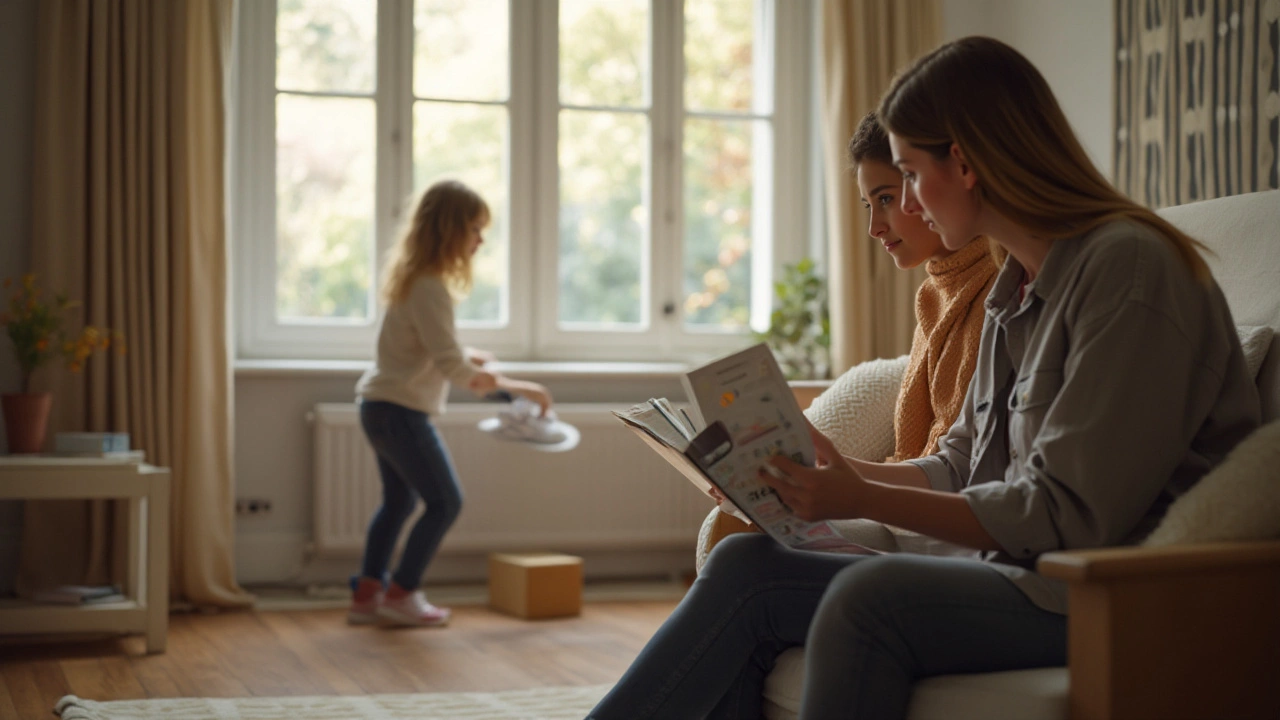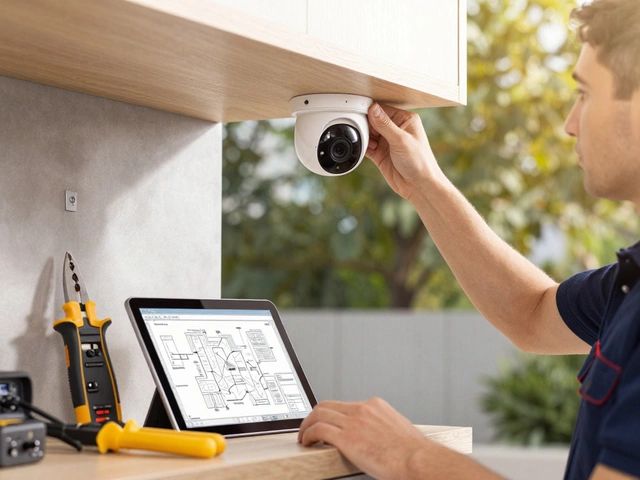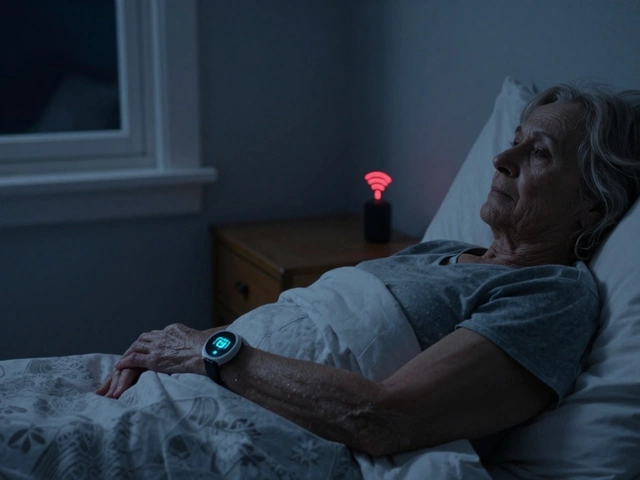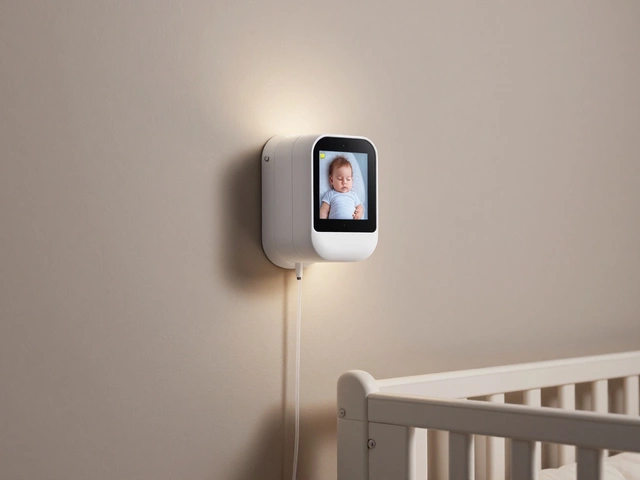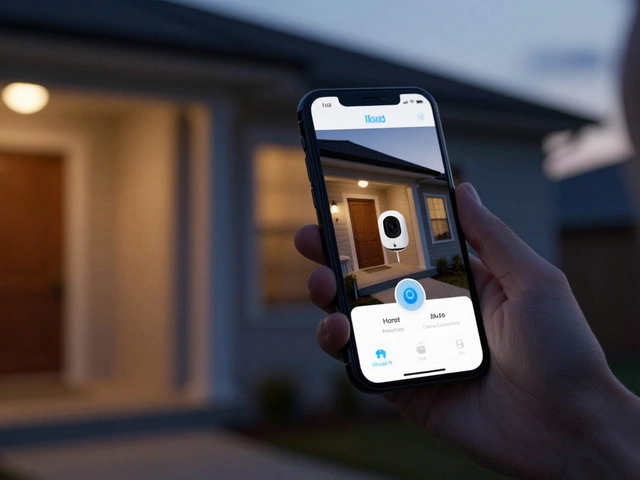As crime rates fluctuate, the security of our homes becomes an ever-growing concern. In recent years, many have pondered whether investing in a burglar alarm system is worth the time and expense. It's easy to get lost in the sea of opinions.
On one hand, these systems promise enhanced security and a certain peace of mind. On the other, they involve recurring costs and require a decision on what type of system is truly best for your needs. In this article, we'll examine the advantages and potential drawbacks so you can make the best choice for your own sanctuary.
- Understanding Burglar Alarm Systems
- Benefits of Having an Alarm
- Potential Downsides
- Making the Right Choice for Your Home
Understanding Burglar Alarm Systems
Delving into the world of burglar alarm systems can initially seem daunting, yet it's an enlightening journey into the technology safeguarding our homes. These systems consist of various components working in harmony to detect unauthorized entry and alert occupants or authorities. You might have come across terms like sensors, control panels, and alarms—but what do they all mean? Understanding this can be crucial, especially when so many options populate the market, making it hard to pick the right fit for your home safety needs.
At the heart of any effective alarm system lies the control panel. This central 'brain' communicates with all components. It monitors the status of every device linked to it and decides when the alarm should be triggered. Usually, it’s installed in a less obvious part of the house to prevent intruders from easily accessing it. While older systems used to require manual intervention for operations, the modern ones offer remote controls and connectivity options like smartphones and tablets.
Now, let's talk about sensors. They come in various forms, including door and window sensors, motion detectors, and glass-break sensors. Each serves a unique purpose—door and window sensors detect when an entry point is opened, motion detectors identify movement within a pre-determined area, while glass-break sensors catch the distinct sound of breaking glass. Integrating them effectively can create a security net that's hard to breach. Motion detectors today employ advanced technologies, like infrared and microwave sensors, to differentiate between human movement and, say, a cat roaming around.
Then there's the part most of us dread - the wailing siren. Whether it’s a loud hoot or a more subdued chime, the siren does two things: scare the intruder and alert anyone nearby. In some setups, this is accompanied by an automatic dial-out feature that contacts the authorities. This brings us to the topic of monitored vs. unmonitored systems. Monitored systems involve a third-party service that keeps tabs on your security setup around the clock. It's an attractive feature for those looking for comprehensive protection, though it involves an ongoing cost. Yet, some find unmonitored systems sufficient, equipped with alerts that go directly to the homeowner.
"Innovation in security systems has turned a simple alarm into a smart home's guardian," highlights Lorraine Harris, a prominent home security expert, emphasizing the evolution of these systems.
Many favor a particular system type over another, depending on their lifestyle or specific security concerns. Understanding these components and their functions is the first step towards leveraging the capabilities of a robust burglar alarm system. Whether you aim for a sophisticated integration or a straightforward setup, grasping the basics of a reliable security system ensures you protect what matters most.
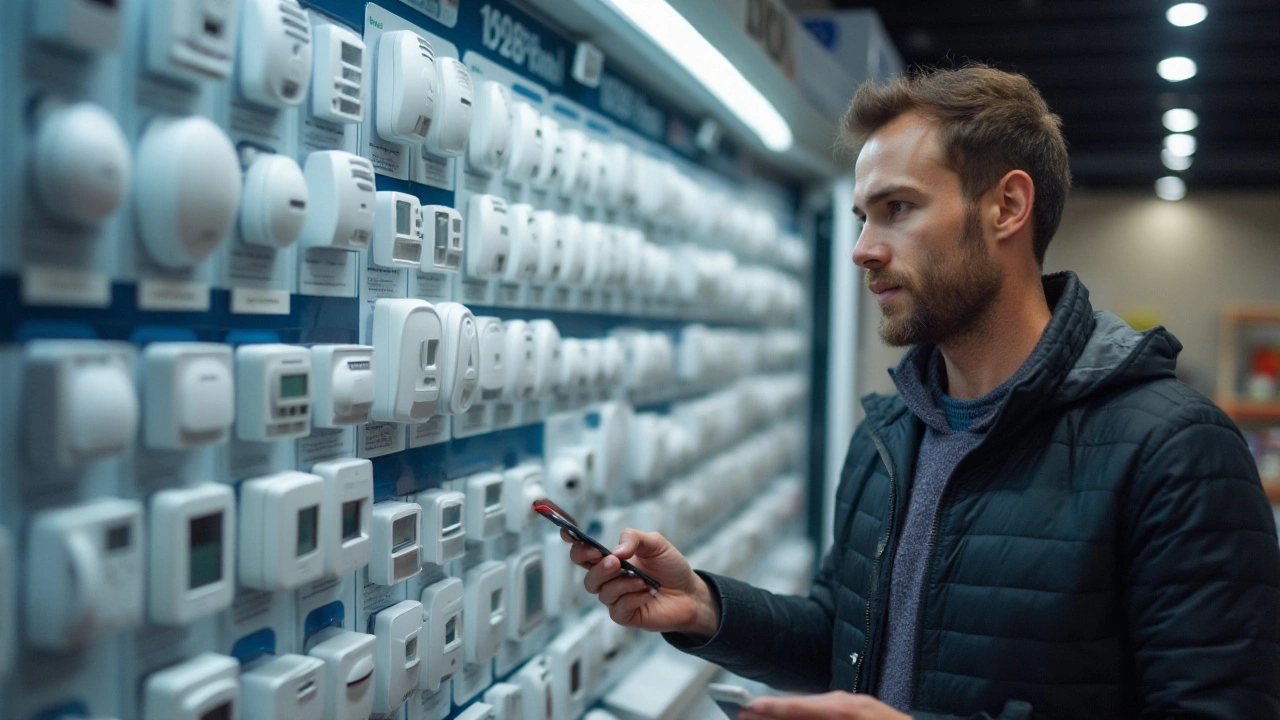
Benefits of Having an Alarm
It's no secret that a burglar alarm system can dramatically increase the safety of your home. According to numerous studies, homes without security systems are up to three times more likely to be broken into than those with them. This fact alone is often enough to sway homeowners towards making an investment in their personal security. But it’s not just about statistics; it's also about peace of mind. Knowing that your home is monitored and protected whether you are away traveling or simply sleeping peacefully at night can bring a significant comfort level. Imagine waking up in the middle of the night to a suspicious noise and knowing that your alarm system has your back.
Another significant perk of installing a security system is the potential reduction in homeowner's insurance costs. Many insurance companies understand the risk reduction benefit of these systems and offer discounts for having one installed. These savings can sometimes offset the initial investment in the alarm, making it not only a safer choice but also a financially sound one. Additionally, modern alarm systems come with a plethora of convenient features that can also improve quality of life. Many systems now integrate with smart home technology, allowing you to control everything from lighting to heating remotely, providing an elevated level of convenience and efficiency.
Moreover, the technological advances in alarm systems today offer a comprehensive approach to home security. With options such as video surveillance, motion detectors, and remote access via mobile apps, you're not just bolstering security, you're also embracing a new form of connected living. Indeed, it's not uncommon to find households where the simplest alarm systems have evolved into a central hub for managing the entire house. Plus, if you rent your home, certain insurance companies extend the same benefits of reduced premiums if a system is installed.
"Investing in a security system can deter potential intruders just by its mere presence," says a report from The Electronic Security Association. "The loud siren often provokes immediate departure from the scene."Once you look into the holistic benefits brought about by these alarm systems, it becomes clearer why more and more people are making them a staple of their household. From practical savings to the immense psychological comfort they bring, the reasons for choosing to install an alarm go well beyond the surface level benefits. Remember, a wise investment in a home safety solution today sets the stage for not only a more secure, but also smarter home tomorrow.
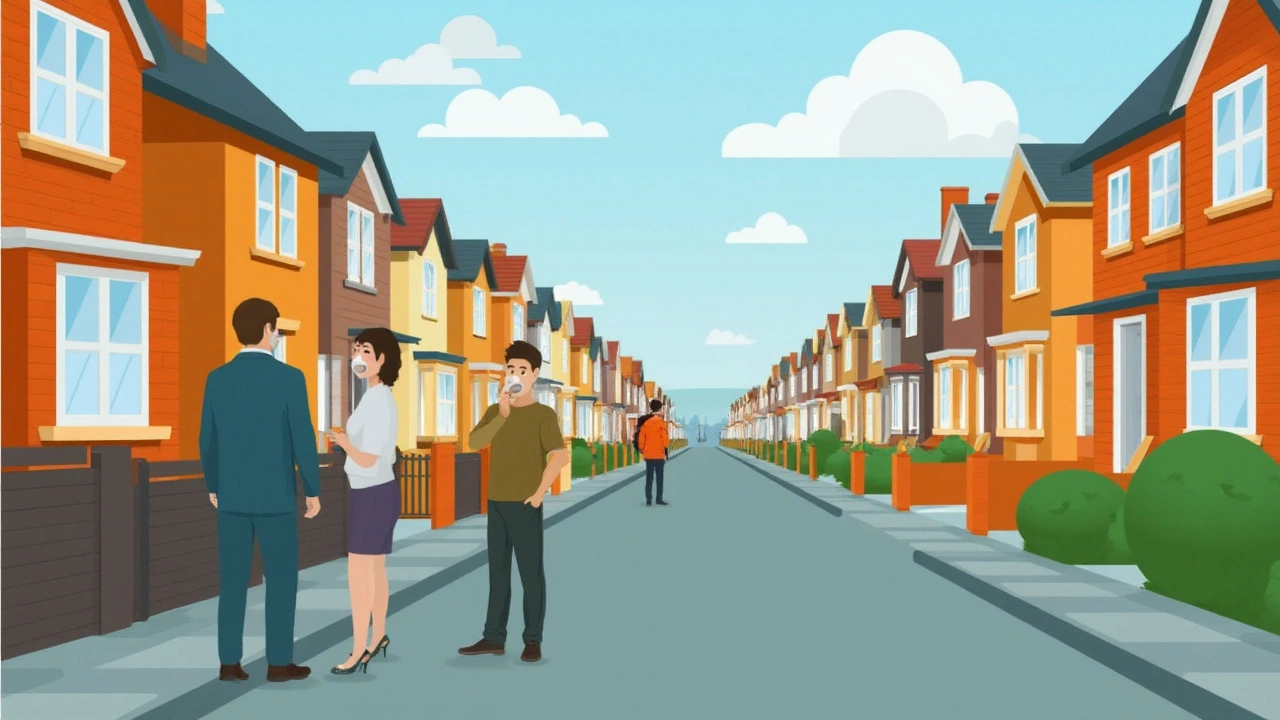
Potential Downsides
While many find burglar alarm systems reassuring, it’s important to consider several downsides before making a commitment. One major concern involves the cost associated with these security systems. Initial installation can be pricey, especially for advanced systems that integrate multiple sensors and cameras. Additionally, many alarm services require monthly subscriptions to function optimally. As these costs accumulate, it's necessary to assess whether the investment realistically fits into your budget.
Another significant downside is the maintenance and upkeep that burglar alarms require. Like any piece of technology, these systems aren't exempt from technical issues or failures. Regular maintenance checks are necessary to ensure the system is fully operational and ready to alert you in the event of a break-in. This sometimes means scheduling regular professional visits, which can be both inconvenient and costly.
"According to the Security Industry Association, regular upkeep of alarm systems can reduce false alarms by up to 90%," said Jane Trevecca, a renowned security consultant. "However, not every homeowner sees these preventive measures as necessary until it's too late."
Beyond costs and maintenance, false alarms are a prominent issue, contributing to potential desensitization over time. Alarm systems might trigger unnecessarily due to factors like power surges or pets tripping sensors. Frequent false alarms can lead to fines in some jurisdictions and neighbors growing weary of constant disturbances. Consequently, this can diminish the overall effectiveness of the system's deterrence.
Privacy Concerns
Privacy is another consideration that some homeowners might overlook. Modern security systems often involve cameras, which can record footage of both your home and its surroundings. While they do provide evidence in the unfortunate event of a crime, constant surveillance often intrigues privacy advocates. Knowing when and where the cameras record is fundamental, and it's crucial to balance security with personal privacy.
Finally, there’s the potential of becoming over-reliant on an electronic system. Relying heavily on technology may cause complacency in other security measures. When a home safety system is in place, routine practices like securing windows or locking doors can sometimes be neglected, which paradoxically diminishes the overall safety of your household.

Making the Right Choice for Your Home
Deciding on a burglar alarm is not just about picking any system off the shelf; it's a choice that requires careful thought about your unique needs. You will need to consider many factors, starting with the location and size of your home. Larger homes might call for more extensive systems, while smaller apartments could do with something a little less involved. But size isn't everything. The local crime rate can provide telling insights into what kind of protection might be necessary. For those residing in neighborhoods with higher burglary statistics, investing in more advanced systems with multiple sensors may be worthwhile. A common piece of advice is to speak with neighbors and local community groups to get up-to-date information on what's most effective in keeping homes in your area secure.
The type of alarm system is another critical consideration. Wireless systems, for instance, have grown in popularity due to their ease of installation and flexibility. Wired systems, though often requiring professional setup, can be more reliable as they aren't susceptible to hacking in the same way as wireless options. Modern advancements have also brought about smart alarm systems which are controllable from a smartphone or tablet, putting security in the palm of your hand. These features, while convenient, increase costs as well, so it's vital to weigh your budget against your needs. A good way to make this assessment is to list out your priorities in a home security system: ease of use, reliability, cost, and features. Consider what you're willing to trade off for a more economical option.
According to a security expert, 'The best alarm system is one that you can trust immediately, but you must also plan for how it integrates with your daily life without much fuss.' This statement underscores that an alarm system's usability often dictates its effectiveness.
Beyond the technical aspects, the choice also involves understanding the legal requirements in your region. It's not uncommon for certain areas to have laws about alarm usage or noise levels; sometimes even requiring permits. Ignoring these legal considerations can lead to unexpected fines and headaches. Therefore, reach out to your local council to ask about any known regulations, which can often be found on official websites or by speaking with local security companies. Remember that a well-chosen alarm system is part of a broader strategy for home safety, supplementing other measures such as good locks, secured windows, and community vigilance.
Assessing the Costs
The cost of a security system is more than just the initial purchase price. Installation fees, which can vary significantly depending on the complexity of the system and the size of the property, must be considered. Maintenance fees are another ongoing expense that might be overlooked initially. High-tech systems, with their numerous parts and connections, might require more regular upkeep. Also, consider if the system has monthly monitoring fees. Some homeowners find value in systems that connect to a professional monitoring service that immediately notifies authorities in case of a breach. Others prefer systems that alert in-home with sirens or connect directly to a homeowner's mobile device. Analyzing these factors critically ensures you select a system that won't cause financial strain and gives the security level needed.
In New Zealand, the choice of alarm systems has become increasingly varied, offering options from basic DIY kits to comprehensive, professionally installed systems. A survey in 2023 found that nearly 72% of alarm owners felt their systems made a significant difference in their peace of mind. As we sift through the endless possibilities, being informed on all fronts helps create a tailored security plan that perfectly fits your lifestyle, adding that much-needed layer of protection that resonates with your household's standards of safety.

